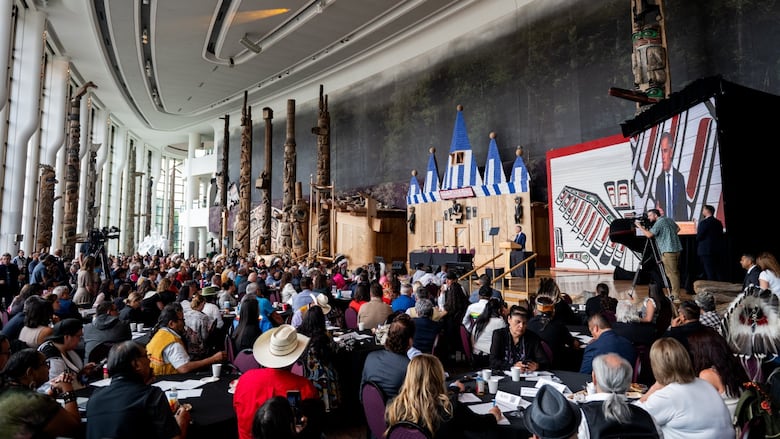Sask. First Nations leaders among those at summit with prime minister about Bill C-5
Some left with more concerns, others are hopeful

Saskatchewan First Nation leaders were among those in Gatineau, Que., this week for a summit with Prime Minister Mark Carney designed to allay concerns about Bill C-5, which is aimed at fast-tracking national infrastructure projects. The bill already passed before the summit.
Grand Chief Brain Hardlotte from the Prince Albert Grand Council (PAGC) was in attendance. He described it as an interesting day, but said he left even more confused about what the bill means for PAGC communities.
"Without discussions, I wouldn't really call this a consultation," Hardlotte said. "Consultation happens before anything, any development, or in this case legislation."
Harlotte compared the bill to the Natural Resource Transfer Agreements (NRTA) signed between Canada and the Prairie provinces in 1930, without First Nations consultation. He called the NRTA, "a direct threat to Indigenous sovereignty, our treaty rights and longstanding responsibilities under international law."
He used Uranium City, in Saskatchewan's far north, as an example of what can happen when governments and corporations act without Indigenous oversight. Hardlotte said mining companies extracted everything, then left a mess of abandoned mine sites and polluted lakes.
"Our people are hunters, fishers, and trappers and these are treaty rights," Hardlotte said. "Because of the NRTA our rights have been eroded, and violated, and all the injustices that have been done to our people are because of this legislation."
Chief Marcel Head from Shoal Lake Cree Nation was also present for Thursday's summit in Ottawa. He said his community needs to benefit from the natural resources and minerals that are extracted from it.
"We never gave up our land, we never gave up our resources when we signed the treaty," he said.
"It is time that Shoal Lake stand up, along with Red Earth Cree Nation, to take back what is rightfully ours, and start benefiting from the resources that have been historically extracted out of our traditional territory."

Head noted that this year marks the 150th anniversary of the signing of Treaty 5, and said the spirit and intent of the treaty was not only to share the land, but also the resources.
"Do we see that today among both levels of government? No," Head said.
Contention and distrust
John Desjarlais is the executive director of Indigenous Resource Network, an organization that advocates for workers, business owners and communities who support Indigenous inclusion in the natural resources sector. He said Bill C-5 prioritizes Indigenous participation in major projects.
"[The bill] is a strong signal. It's certainly a statement of platitude. I think it's on the government to take action and build further trust with First Nations, Metis, and Inuit communities," Desjarlais said.
He said First Nations across Canada have had a variety of experiences with government through the years, many of them bad.
"There is a lot of contention, there's a lot of distrust," he said.
At the same time, he said there are good examples of how the country can move together in good faith.
"We've seen a lot of recent project developments," he said. "I think we can learn more in terms of achieving consent, achieving equitable involvement where Indigenous people are much more meaningfully involved, and in some cases co-governing and co- managing infrastructure projects."
He said First Nations deserve to benefit from development and that Bill C-5 could help with that.
"It's economic reconciliation," said Desjarlais. "Indigenous communities are tired of burying the environmental risk … and should be involved in the management of that risk and of course the reward."

